Following your feedback, we decided to make IPv6 RIPEness a production service. We are currently working on some new features. Stay tuned!
In the previous article IPv6 RIPEness - One Year Later, I asked several questions about additional features and criteria and the future of this service. Thanks to your support on the RIPE NCC members-discuss mailing list and on RIPE Labs itself, we are now moving IPv6 RIPEness to production service! We did not make any significant changes to the service yet, but there is a progress. See below some examples.
To visualise the IPv6 RIPEness in our service region, we are working on a way to show IPv6 RIPEness per country on a map. Please see a below a quick-and-dirty first attempt, using Google Chart Tools (Thanks, Emile & Iñigo!). To make coding easy, we presented the percentages of four-star Local Internet Registries (LIRs) per country on a gradient scale, from red to green, comparable to a traffic-light (rather than the "ripe fruit" colouring scheme used earlier). In the image below, this means: countries with the highest number of four-star LIRs are marked in green, countries with the lowest number of four-star LIRs are marked red. Keeping this in mind, you can see that the following countries are leading: Portugal, Moldova, Armenia, The Netherlands and Slovenia.
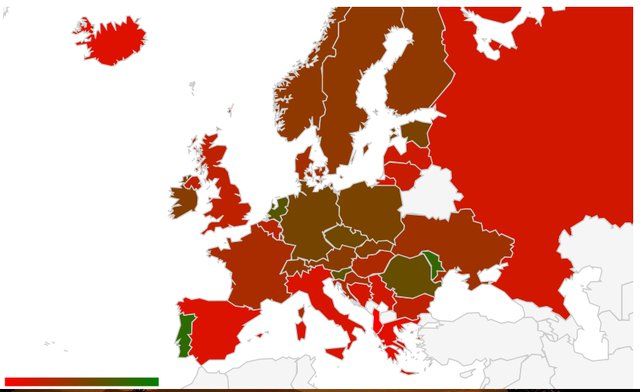
Figure 1: Map showing IPv6 RIPEness in the RIPE NCC service region(green = country with highest number of four-star IPv6 RIPEness; red= countries with lowest number of four-star LIRs)
Since the initial purpose of the IPv6 RIPEness rating was to determine which country needs more attention and training, we analysed the impact RIPE NCC IPv6 training courses have on the IPv6 RIPEness in a country. The most stunning example was Armenia: In March 2011 the RIPE NCC organied an IPv6 course there. Within 3 weeks after the course there was a 20% increase in the number of IPv6 allocations! And even now, Armenia has the 2nd highest total RIPEness score in the RIPE NCC service region: (74% of all LIRs in Armenia have one-to-four stars vs. 26% that have zero stars), just after Slovenia (78% vs. 22%), and just before Romania (73% vs. 27%) & Portugal (71% vs. 29%).
My colleagues Emile Aben & Marco Hogewoning are currently researching the impact of events (such as courses or conferences ) on the IPv6 deployment so more. The findings will be presented at RIPE63 in Vienna.
The relative ratings are obviously biased towards countries with a small number of LIRs. The graph below shows the absolute values for IPv6 RIPEness in the 15 countries with the largest number of LIRs.
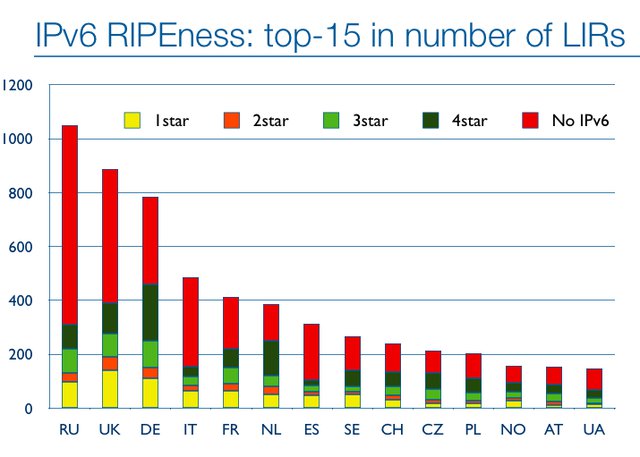
The total number of LIRs with IPv6 address space did not reach 50%, as some people were hoping. As shown in the image below, 54% of all LIRs with still has zero stars which means they don't have an IPv6 allocation. One of the possible reasons is the sharp growth in the number of new LIRs: since the last IPv6 RIPEness count in May 2011, there were 390 more LIRs; the number of LIRs requesting IPv6 space was bigger (516 LIRs) - but percentage wise, we are still “transitioning” slowly.
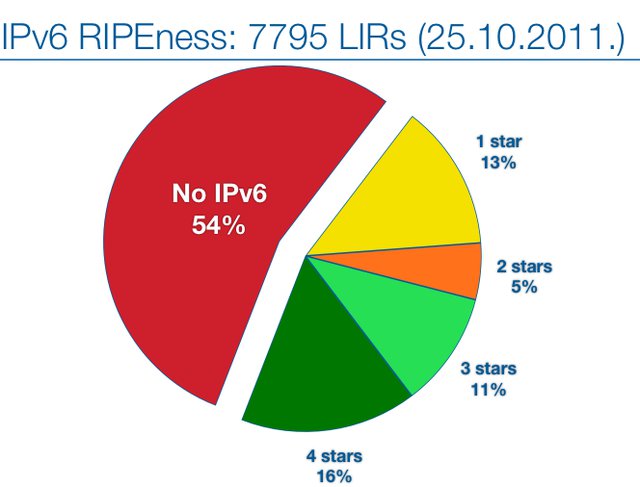
I am also working with other RIRs on a global IPv6 RIPEess rating – stay tuned!

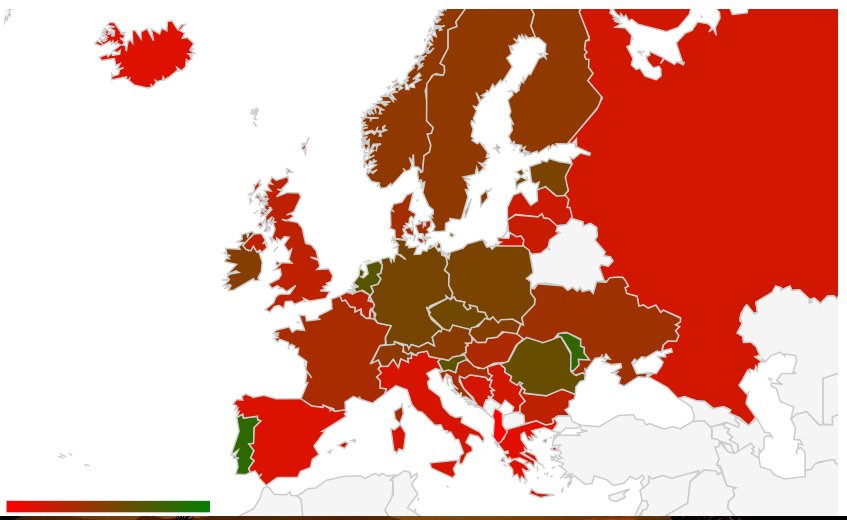


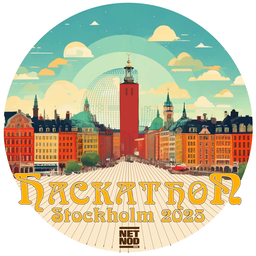
Comments 3
The comments section is closed for articles published more than a year ago. If you'd like to inform us of any issues, please contact us.
Gert Doering •
I'm still waiting for a way to get our 5th and 6th star...!
Vesna Manojlovic •
Gert, we will pick that up "soon" - in combination with doing the RIRness: RIPEness for other RIRs. APNIC researchers had some additional ideas, since they can not use "route6 objects" rating... so we might use their idea as a 5th star for our rating. Thanks for your interest!
Gert Döring •
Now you surprise me - why cannot APNIC use route6? I have it on good authority that their databases fully supports that... ("whois -h whois.apnic.net -T route6 -r -M ::/0" returns 3534 route6 objects)